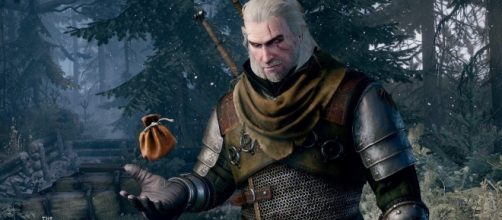The Witcher: a global phenomenon born in Poland
The self made publisher CD Projekt Red (CDPR) has received praise in recent years both for the quality and vision of The Witcher game series and for a positive relationship with gamers at a time when many large publishers are viewed with contempt due to cynical DLC/ pre-order policy and broken promises during development. In addition to the release of free DLC content and value for money expansions, CDPR have created the Good Old Games (GOG) platform which is a big player in DRM free Gaming on PC and supporting up and coming developers.
The growing empire of founders Marcin Iwiński and Michał Kiciński today is undoubtedly a result of the cult following from the original Witcher game followed by the remarkable commercial and cultural success of The Witcher 2 and The Witcher 3 which have been well-received on PC and console. But what about the man responsible for creating the world and characters in The Witcher, celebrated by so many fans?
Andrzej Sapkowski may be a household name in his native Poland, where he is revered as their nation’s answer to J.R. R. Tolkein, but remains generally obscure globally. The Witcher ‘saga’ novel series, on which the games are based, have only recently been translated fully into English. The final novel Lady of the Lake was published in 1999 but the English version was not released until March 2017 - 19 years later.
While it’s clear that the international acclaim of the books has increased because of the video games, in truth the games owe everything to the genius of Sapkowski. His appreciation of European folklore is twisted masterfully to fit the monsters and politics to organically form a rich and compelling fantasy setting.
The Lady of the Lake (The Witcher, #7) by Andrzej Sapkowski #fantasy #highfantasy #translation #book… https://t.co/4BOD0XNZFG pic.twitter.com/igAX8ptWn1
— Risingshadow (@RisingshadowNet) March 14, 2017
At the negotiating table (no Axii sign allowed)
It may not be well known that a Witcher game was almost created by a different developer entirely.
Adrian Chmielarz (Vanishing of Ethan Carter) teamed up with Metropolis Software (now defunct) in 1997 to pitch a video game based on the books to publishers but the project was thrown out because it was deemed overly ambitious.
In a recent interview with EuroGamer, Sapkowski discusses at length his decision to sell the rights to the game, along with several colourful anecdotes such as drinking “unbelievable quantities of beer” with Game of Thrones author George RR Martin. In the early 2000s CDPR approached Sapkowski and a deal was struck. His motivations were clearly not purely artistic: “What I expect from an adaptation: a big bag of money. That is all.” Fair enough.
The Polish Tolkien? We meet Witcher inventor Andrzej Sapkowski and find out if he really hates games https://t.co/BU9iyXzvDl pic.twitter.com/9jn9uw3YTJ
— Eurogamer.net (@eurogamer) March 24, 2017
It's no secret that in those days Sapkowski had little or no interest in the medium of games and obviously under-estimated the potential impact they could have in the future, as reflected in his decision not to negotiate a royalty: “I was stupid enough to sell them rights to the whole bunch… They offered me a percentage of their profits.
I said ‘No, there will be no profit at all - give me all my money right now!’”
In hindsight, it did not turn out to be the greatest business decision of all time, since The Witcher 3 alone has sold over 6 million copies amounting to a profit of roughly €58 million. Sales remain very strong 2 years after the game’s launch – stacking up nearly €8 million profit in the first quarter of 2017 alone.
This example stands in stark contrast to Geroge Lucas’ famous decision to waive a pay rise to direct Star Wars in 1973 on the condition that he would retain the rights to merchandise and profit from any sequels, which has made him a personal fortune worth over $5 billion.
To Sapkowski’s credit he is not bitter about the experience: “The game is made very well...
the game is very good.” he said. Despite losing out financially due to the details of the deal, popularity of his work is greater than ever thanks to the inter-dependency with the game. Speaking at a book signing in the UK, he admits to happily signing a copy of the game whenever asked by fans… even if they’ve never read the books (Heathens!)

